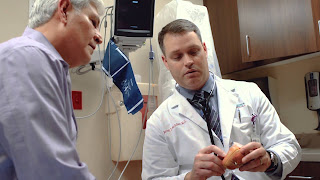Choosing an Internal Medicine Career
In order to become an internist, or someone that practices medicine on adult patients of all levels of wellness, a long time in school is required. Along with the typical years of medical school, an additional period spent in an internal medicine residency is absolutely necessary in order to ensure that you’ve learned all of the required skills and abilities to adequately practice and help the people that need you. This career is a good choice for people that want to learn how to prevent, diagnose and treat the different medical conditions that impact the lives of millions of adults on a daily basis.
Though their skill set makes it possible for them to see and treat a large variety of patients, someone that has completed an internal medicine residency is different from a family medicine doctor, as only adults are seen by internists. Completing an internal medicine residency DC will set you up to become a successful and well rounded practitioner of internal medicine, and give you the opportunity to see and treat your own patients, as well as potentially be called upon to assist stumped doctors from around the country as to the condition and needs of their patients.
Completing an Internal Medicine Residency
During the three year long Georgetown internal medicine residency, participants will be exposed to a variety of situations, facilities and patients. This time will be largely spent “on the job” as 70% of the educational experience relies on the residents interacting with patients, other doctors and nurses and real-life situations that require treatment and diagnosis. This will give residents an idea of what it is like to practice on their own, and make it possible to get a better understanding of the broad spectrum of situations that they can be faced with throughout their medical career.
The field allows for both generalist and subspecialist career paths. By choosing to become a generalist, the bulk of your residency will be spent focusing on a broad range of problems or conditions, while a specialist will focus their attention on a particular condition or issue, like cardiology or oncology. The residency will focus on giving participants experience, but also allow them to study electives in order to focus on a specific area of their choice. This breaks up the program a little bit, and ensures that not everyone is always studying the same things.
The residency will give new internists the confidence, skills and abilities to treat patients in a variety of settings from hospitals and clinics to rural offices and smaller facilities. General internists do not always perform procedures on patients, as they are typically more focused on the diagnosis and examination aspects of medicine, but there are some that may choose to go above and beyond their “expected” duties and perform things like incisions, draining of abscesses, and other lumbar procedures.



